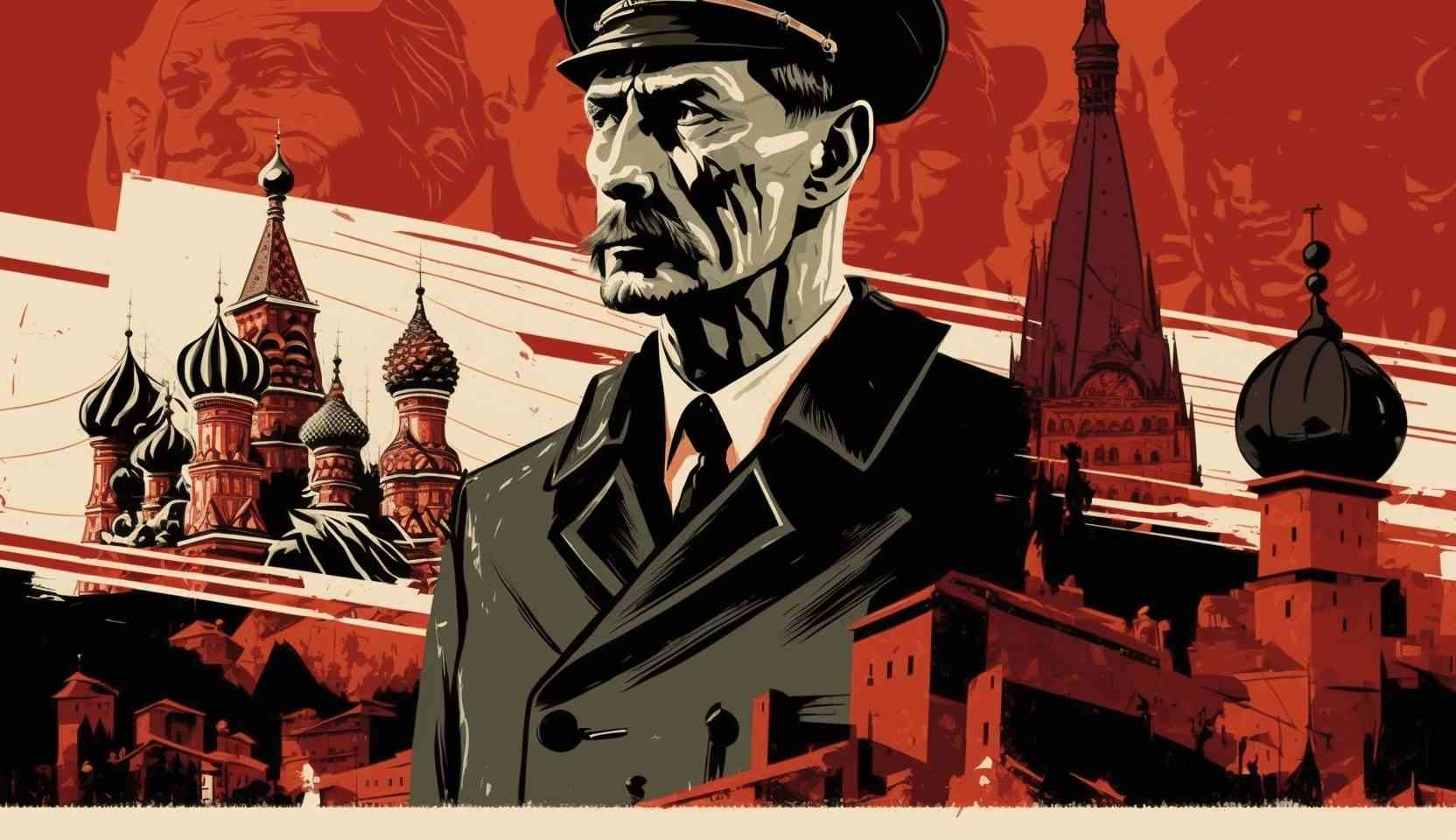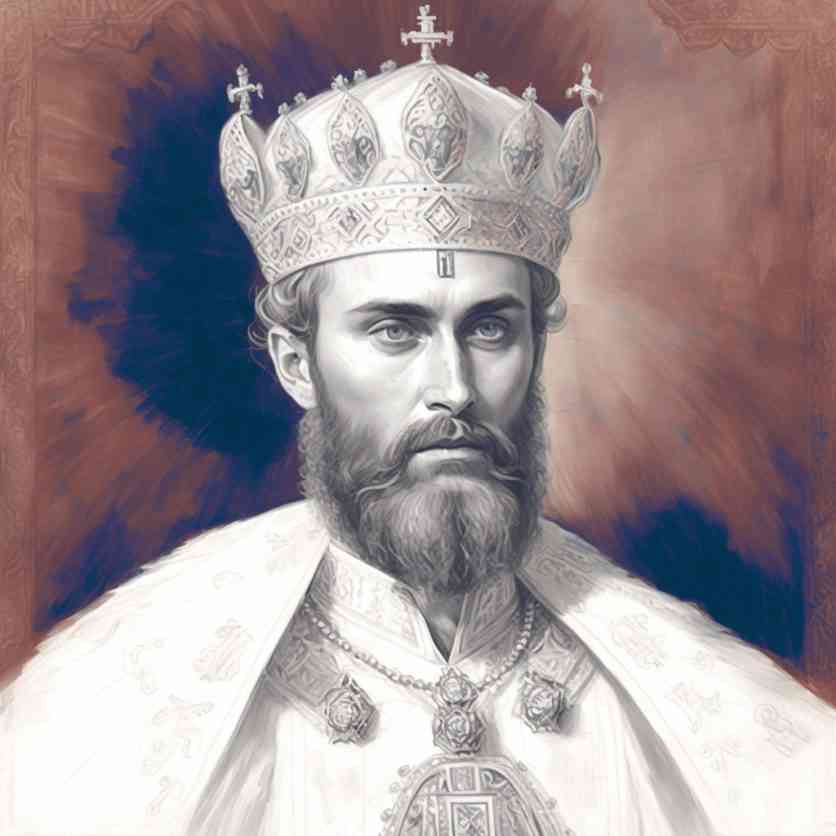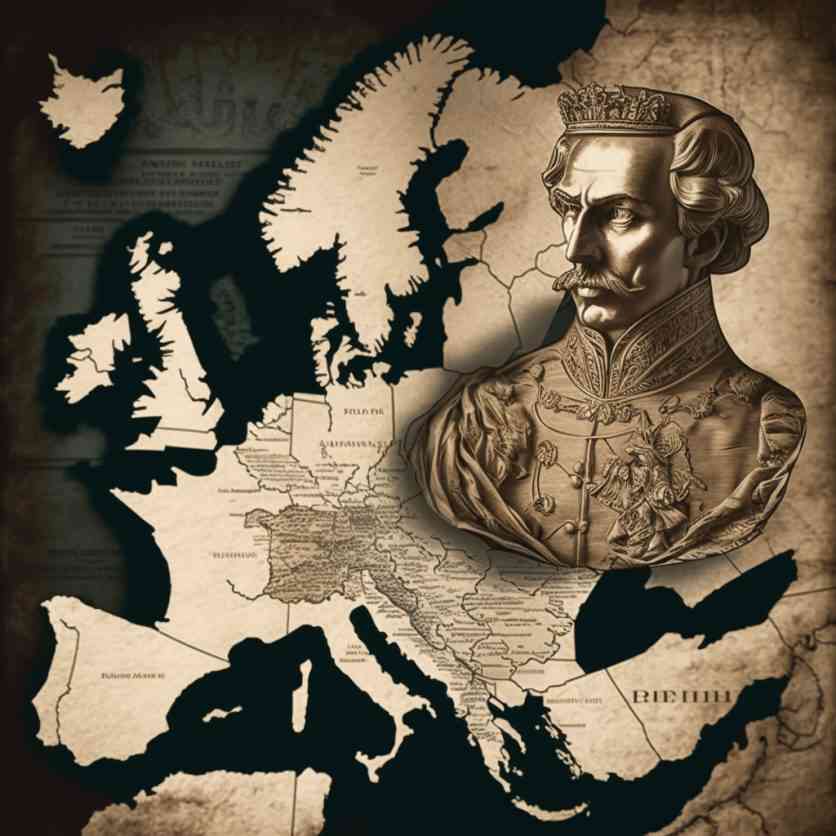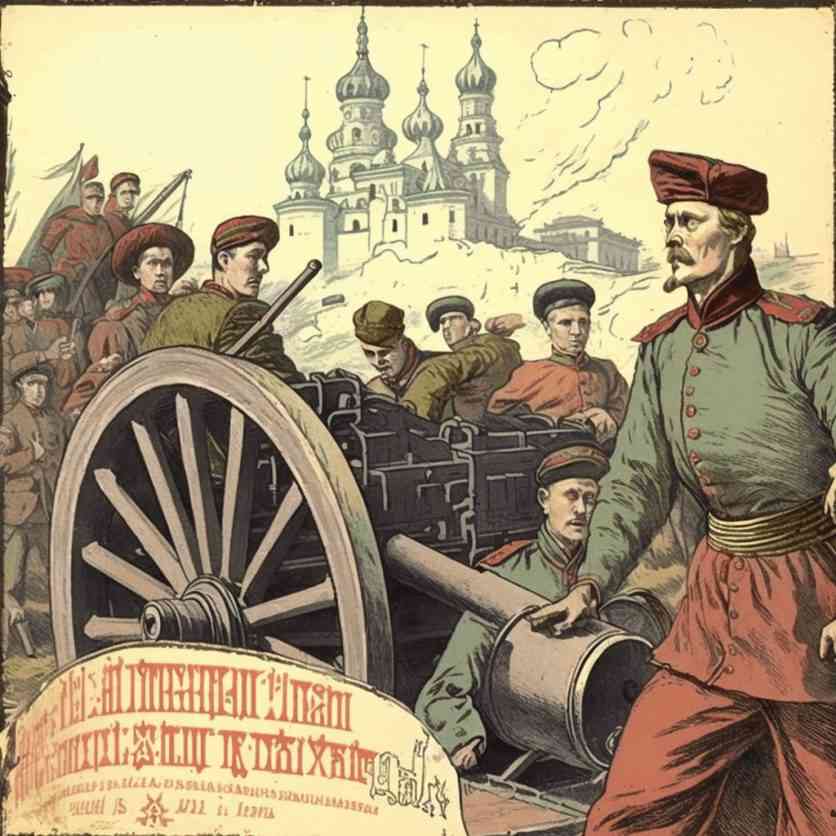Truth & Goodness
Poison on a Plate: What Drives Us to Eat Dangerously?
01 March 2026

It’s always been this way: the vast majority of Russians support their president and his imperial policy, no matter what and no matter the cost. For this to change, Russia and Russians must reinvent and rid themselves of three fundamental notions which have defined what it means to be Russian for centuries: obedience to a strong, authoritarian leader, belief in Russia’s pivotal role in the world, and the overwhelming sense of a constant threat from the West. Does anyone believe they can do it?
In 1866, Fiodor Tiutchev, the distinguished Russian poet and intellectual, wrote a famous poem, often cited to this today:
You can’t grasp her with your reason,
You can’t simply measure her.
She’s so timid and so proud that
All y’can do is have faith in her. 1)
It’s precisely the final verse with which Russians repeatedly respond when asked about “this whole thing with Russia.” That “faith in Russia” is their firm, intrinsic belief about their motherland as an independent, unique entity as incomparable to as it is unparalleled by any other country in the world. In their mindset, in ideological, spiritual, cultural, and religious senses Russia is a separate continent, a veritable eighth one. So convinced are Russians that they differ from the rest of the world it’s as if they constitute a completely distinct world, some self-contained and separate planet.
And they’re right, they do differ from the West: they’ve been immersed in Eastern Orthodox Christianity since the Great Schism of 1054 as it has forged its identity in opposition to Rome and to the Latin world. Quite precisely, it was the Russian Orthodox Church that prevented Russia’s going through the turbulence of the Protestant Reformation and of the Enlightenment as both brought about fundamental changes and ideas without which today’s Europe would hardly be possible and gave rise to basic, indispensable concepts including individualism, modern democracy, liberalism, and individual rights. In fact, liberal trends advocating tolerance and freedom that spread across Europe for centuries ground to a halt at Russia’s borders.
When Kievan Rus, the medieval Slavic amalgam state that later transformed into Russia, accepted Orthodox Christianity from Byzantium, it adopted both Byzantine rites and a system in which the emperor was at once a political and a religious leader, his authority and power provided by God and therefore held sacred. Over time, Russians went a step further, however, and attributed holiness to the ruler himself. Many Russian texts identified the Tsar with God and with God’s Son: a given tsar was referred to as “Christ” (“You are Christ”). Consequently, his throne became a new Mount Tabor, site of Christ’s transfiguration, and all that related to that tsar was regarded as sacred. His blood was sacred as was his family and his will.
Such a concept had unforeseen consequences. Tsar Paul I decided that he wanted to celebrate the liturgy, for example. He felt it was his right – after all, he was head of the Russian Church. It took much diplomacy for the Orthodox bishops to skillfully maneuver him out of this idea. And not only tsars got carried away with the idea. In the nineteenth century, hanging portraits of the current tsar among paintings in Russian churches was common practice. People knelt before them, lit candles and prayed to them as they did before holy icons. More recent examples of such devotion abound. In 2008, Stalin icons were placed in a church in Strielna, near Saint Petersburg. Two years later, in Moscow, this happened in the Church of Saint Nicolas. And in 2007, near Nizhny Novgorod, among the largest cities in western Russia, a new sect founded and led by a Mother Photinia pronounced that Vladimir Putin was an incarnation of Saint Paul. According to her, as Paul had oppressed Christians before his conversion, so had Putin as a KGB officer. When Putin was elected president, the Holy Spirit descended upon him and he became a spiritual leader for all Christians. Putin’s portrait soon hung among the icons in the sect’s church.
Read also:
In Russia, authority is inviolable, indisputable, and sacred. Even when it is despotic and cruel, it must not be questioned. The ruler is to be respected and praised because however bloodthirsty and fiendish he may be he’s the entire system’s cornerstone. 2) Should he go, all is lost and we Russians are doomed. This is how Russians think. And it’s what they always seem to have thought.
Ivan the Terrible was inconceivably sadistic and monstrous even by his era’s standards. His minions killed by the thousands, including boyars by the hundreds. But once Ivan tired of the throne and sought solitude and nearness to God in a provincial monastery, boyars and merchants were terror-stricken. Though so many in their families had been tortured and killed at his orders, now those boyars went in processions to beg their tsar to return to Moscow and take up power again. Similarly, countless documentaries show Russians crying after Stalin’s death, their tears neither fake nor insincere. The point is that Russians would never condemn authority simply for cruelty and despotism. In their view, being cruel and despotic are fundamental to the system.

In fact, the more a ruler resorts to those qualities in expanding Russia’s borders, the more value they accumulate. Territorial expansion has always been fundamental to Russia’s identity. What Ukrainians take as a deadly threat is for Russians but a natural need, essential and legitimate, even required and desired. The state and state authorities only function well if they are aggressive. Russia is meant to be strong. From the early, tiny Muscovite principality into the times of the great empire, Russia invariably focused on territorial expansion. Its system of colonies around its core territory spread in all the directions. Russian elites have always believed that a chance to expand its influence territorially and/or economically should be taken. Why? Because in so doing Russia was simply exercising its sacrosanct right. Russians, it so happens, have always believed Russia is meant to be God’s earthly empire.
This belief stems from how they perceive their history. After the fall of the Byzantine Empire fell in 1453, the Grand Principality of Moscow was the sole independent country of the Orthodox rite;, all other Orthodox nations – Bulgarians, Serbs, and Greeks – were taken by the Ottoman Empire. Only natural for Russia to appropriate the Byzantine Constantinople’s heritage and undertake a historic mission to defend the true faith and to spread it – and by “true faith” Russians understood the one they preached. The problem was that the Russian Orthodox Church held that Constantinople had betrayed the Christian faith once the Byzantines enacted the pact with “Roman heretics” at the Council of Florence and reunited the Eastern and Western Churches in 1439. In Moscow, the Byzantine emperor and the patriarch of Constantinople, having signed the union, were apostates and renegades who abandoned the true Church. The Russian Orthodox Church rejected the Council’s decisions and those of the patriarch. Sentiment was such that Isidor, metropolitan of Kiev and of all Russia who happened to favor the union, only just avoided being burned at the stake. With a new metropolitan elected, the Russian Church gained independence from Constantinople. For Russians, when the Byzantine Empire collapsed, suddenly all became clear: this was an act of divine providence. Constantinople fell to the infidels because God had turned from it, as the Greeks had betrayed their Orthodox faith, as cheaply and venally as ever. Thus was Moscow left with no option but to take it up the creation of God’s kingdom on earth. It had become Russia’s historic mission.
This reasoning was reinforced by the marriage of Ivan III of Russia to Sofia Palaiologina, a niece of Constantine XI, the last Byzantine emperor. Greek and Italian emigrants from the Bosphorus who followed her to the Kremlin brought new ideas, enriching and further developing Moscow’s political agenda. In referring to the prince, a new title was forged: samodzierżca, the autocrat, a direct semantic calque from the Greek autokrator denoting Byzantine emperors’ absolute, unrestrained power. Furthermore, Moscow adopted the double-headed eagle from the Byzantine Empire as an official state symbols. In this way, it pronounced itself the third Rome and spiritual successor of Byzantium.
The idea of Moscow as the third Rome became the most significant dogmatic component of a unique Russian mission. The theory behind it as well as all it amounted to in practice constituted part of the way of thinking for generations of intellectuals and of the political elites of the empire. While especially popular in the nineteenth century, it had been conceived in the late fifteenth century by a monk, Philotheos of Pskov. In his letters to Grand Duke Basil III, son of Ivan III and Sofia Palaiologina, the monk expounded on the first two Romes having fallen, leaving the third Rome, that is, Moscow, unable to afford being destroyed. According to him, the third Rome must fight the outside world, which awaited its collapse. It had obligations, too, of which the most important was to expand the imperial borders, as the greater the empire of Orthodox rulers, the greater God’s glory. Then Moscow could believe in its intrinsic greatness, in its momentous role in world history. The reigns of Ivan III and Basil III brought three major concepts which mark Russian policy to this day. First, for the state to be successful it needed to be strong, aggressive, and conquest-oriented. Second, Moscow, as Russia’s center, was morally obligated to rule all Russians and a tsar was Emperor of All Russia. Third, as Byzantium’s sole successor, Moscow also had the moral obligation to create the imperial home of all Orthodox believers.
War in Ukraine was meant to allow Vladimir Putin to put all three concepts into action at the same time. To present him as the strong, uncompromising ruler willing to unite Ukrainians, or Little Russians as he has call them, with the Russian motherland. Ukrainians, lost sheep of the Orthodox Church, had strayed and refused to rejoin Russia of their own volition due to malicious western influence. Moscow having always believed the West to be evil as is all it has to offer, a conviction that is of paramount importance in our understanding of present-day affairs.

Russia has manifested its cultural distinctiveness and separateness from the West perpetually or, to be more precise, its moral superiority over the western world. Ever since Moscow and the West “discovered” each other in the sixteenth century. Russians decided the West had only “plagues” to offer: Catholicism and Protestantism to start, the panoply of outrageous liberal ideas that then followed. The nineteenth-century Russian intellectuals called Slavophiles, convinced of the remarkable roles of the Orthodox Church and Russia, advocated superior Slavic culture over Western civilization and considered the Russian Empire the sole force able to save the world from moral degeneracy. Years later, Moscow became the capital of Communism, another universal ideology purportedly able to come to the world’s rescue and bestow happiness on everyone, all of which would come to pass once the “corrupt and degenerated capitalism of the West” had been defeated.
In fact, Russia has continually built its identity in opposition to the West and to western culture, on occasion resorting to military confrontation. This explains how Russian propaganda reliably states that Russia isn’t at war with Ukraine but with NATO. It comes from that deeply rooted conviction that Russia’s greatest enemy is the West, based in turn on Russia’s collective memory being shaped and reshaped by the nation’s history. Napoleon attacked Russia; then again, so did the whole of Europe. In the Crimean War, Russia fought single-handedly against the western empires. Attempting to halt the Bolsheviks, the Triple Entente allies supported the White Army the Bolsheviks had to defeat. In the Cold War, western nukes were all zeroed in on Moscow. And so it goes. Thus do Russians see their history.
Since the Napoleonic Wars ended, Russia’s antagonism towards the Anglo-Saxon world has been fundamental its international policy. Having defeating Napoleon, Russia was at its peak, strong and powerful as never before. At the Congress of Vienna (1814–1815), Tsar Alexander I was among the major designers of Europe’s new political order, the remaining states fearfully watching his country, able to destroy that emperor of the French and end to his supremacy. And the British feared Russia most, for good reason: the second phase of British colonialism had begun but for that empire to grow due to free trade Russia’s expansion absolutely had to be stopped. The nineteenth century was therefore bound in a tedious struggle between British and the Russian Empires staged nearly worldwide. In Persia and in Central Asia, a prolonged conflict between the rivals established two spheres of influence: the North dominated by Russia, the South by Britain.
Between 1853 and 1856, what had been a “cold war” changed into a very hot one. France and England decided to stop Russian expansion towards two strategically key straits of the Bosphorus and the Dardanelles, connecting via the Sea of Marmara and the Black and Aegean Seas. Those two countries came to the aid of the Ottomans, with French-British forces in direct military confrontation in Crimea with those of Russia. The latter, with no allies, felt at war with all Europe. This was when supporters of Pan-Slavism issued their first manifestos urging the Slavic world to unite and fight Romano-Germanic civilization.
Russians felt alone on many more occasions. They were left disillusioned by the West after the First World War. During that conflict, the Russian Empire was a very loyal ally of France and Great Britain. In relieving pressure on the Western Front, Russians fought sacrificial battles on the Eastern Front when the French and the British requested this. They lost their country as a result of the war and of the Bolshevik Revolution, yet once that conflict ended, they weren’t invited to Paris to take part in the victory parade. All other allies were there. Russians were not. Consequently, White Army officers who left Bolshevik Russia felt betrayed. They concluded that the West, hostile and alien, would never defend Russian interests. On the contrary, it was clear that the Western world wanted to destroy Russia. In like manner, Russians who stayed in Soviet Russia were repeatedly assured what the West wanted was to destroy the homeland of the proletariat and strip people of the “achievements of Communism.” The Soviet Union and its propaganda further exploited this leitmotif as they pictured the West as increasingly malevolent, hostile, and aggressive. The Soviets’ extensive armament program was duly justified by alleged external threats posed by the West and by a pending military confrontation with capitalist countries. Russian cooperation with the Allies in the Second World War was a temporary truce and didn’t change Russian attitudes, then the Cold War that followed only buttressed them. Over those years, Soviet citizens were told of NATO missiles targeting their towns and cities.
When Putin and his administration decided on an aggressive policy to regain influence in former Soviet Union countries, they also resorted to tried and true propagandist themes. Russia, threatened by the West, was surrounded by NATO forces. The typically Russian syndrome of “a fortress under siege” let Putin reintroduce the idea of “Russian peace” and the “Russian world” in which all their unique values and ways as well as their very existence were endangered by greedy globalists uncapable of understanding the complex specifics of the Russian soul. Liberal imperialists of all sorts spread their godless ideology, their one wish being that the world be turned utterly consumeristic and materialistic and for people to become entirely unspiritual and completely rootless. And for Russians, it is only logical that if their civilization, which is the only one based on true values, is endangered, it must be defended. What’s more, there is the urgent need to do everything possible to make all strayed Orthodox souls return who, due to the turmoil of earlier decades, had erred and wandered away from Russia. All including, mind you, those who don’t want anything to do with Russian peace.

It seems that ideas dating to the Middle Ages led Russia to launch a war in the present day for reasons nobody but Russians can understand. The problem being that over the past five hundred years most countries and nations have changed in fundamental ways, unlike the musty principles of Russia’s hypothetical “historic mission,” which haven’t changed at all, neither through civilizational progress nor over time. The question is if there anything whatsoever can change them.

Truth & Goodness
01 March 2026


Zmień tryb na ciemny